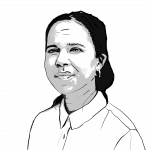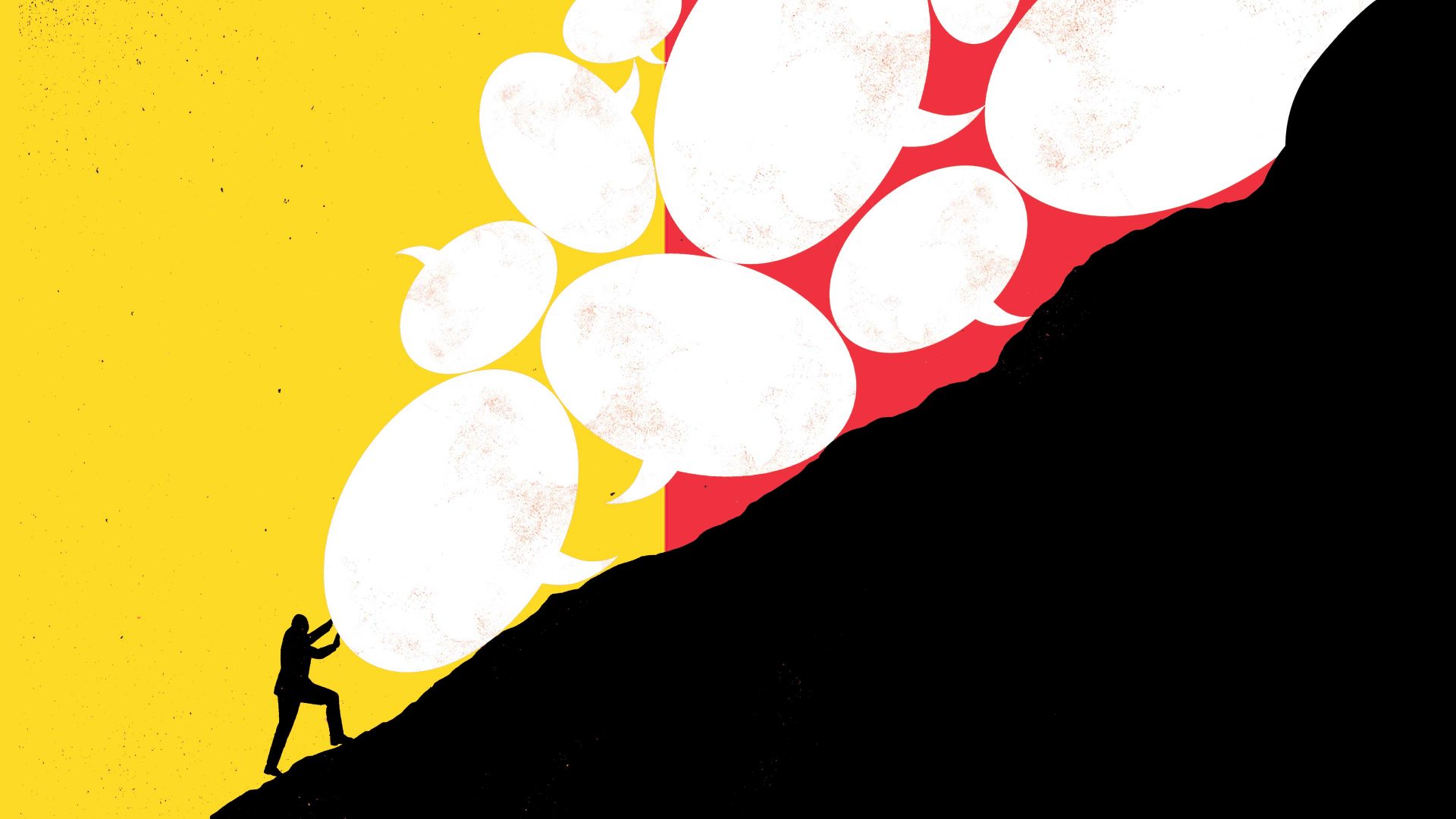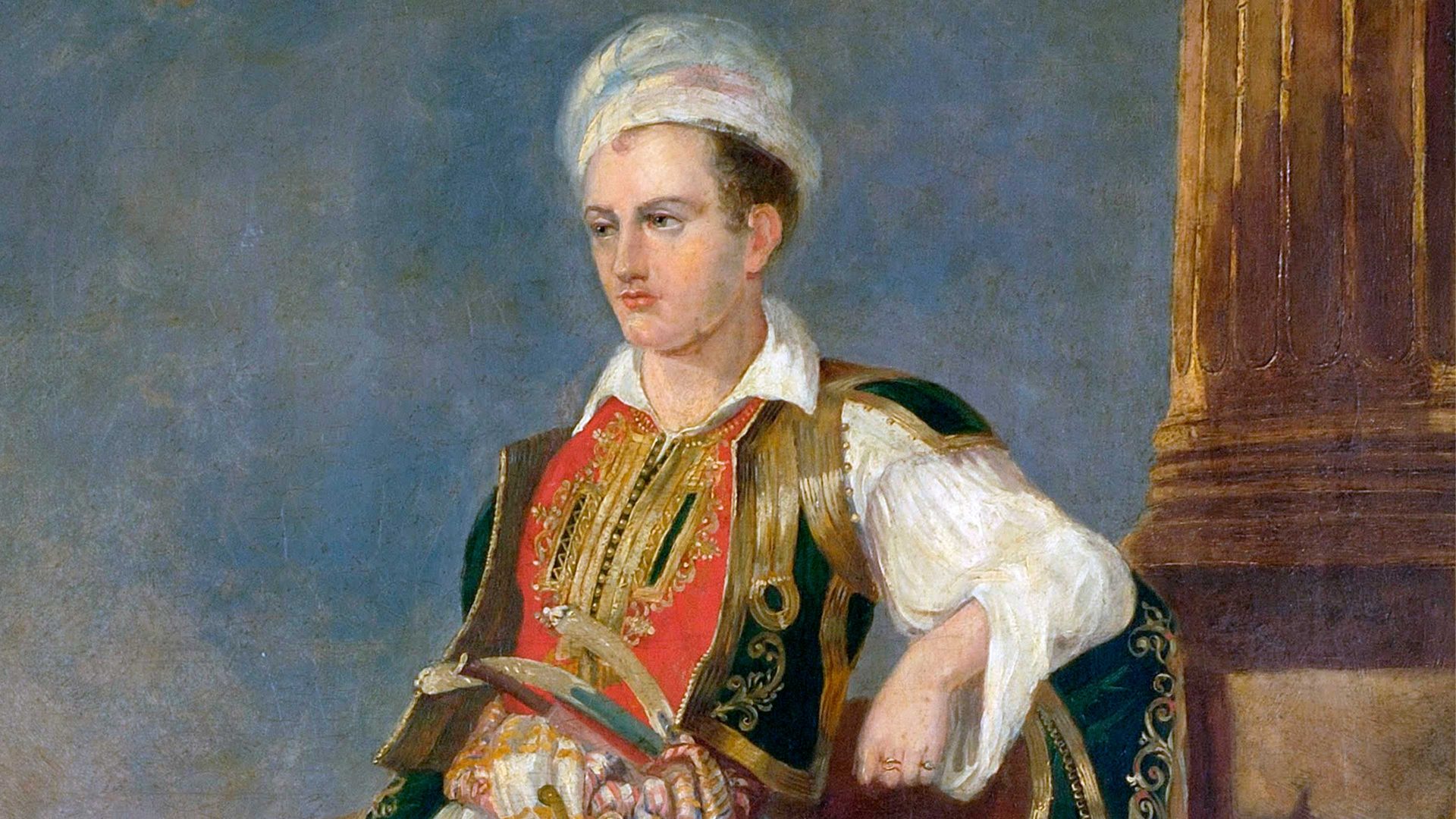The cab driver at Brussels airport strode towards me and gave me a friendly nod in what I recognised was an invitation to speak first.
Right there and then, I realised I had forgotten about this very Brussels choice, which had to be made before any interaction could take place. Was I to address him in one of the city’s official languages, French or Dutch; or perhaps what is now the city’s second-most spoken language, English?
I looked for clues in his face, his clothes, but there was none. So I ignored his silent cue, handed him my suitcase and climbed in the minivan. He would have to choose.
When he turned around and asked me for my address in accented French, it became obvious he was a native Dutch speaker. I could have switched to Dutch – I probably should have – but keen to practise my French after a long stay abroad, or perhaps simply jetlagged, I replied in French.
And so the charade began. As we got closer to my house, I told him where to park. But my French rusty, I used the absurdly formal se stationner rather than the more appropriate se garer.
Any minute now he would surely realise I was a fluent Dutch speaker, berate me for my foolishness and I would for ever become an anecdote he would share about that silly woman he once took home from the airport who pretended she was a French speaker.
Such are the conundrums that locals face in Brussels. In a city where most people speak more than one language, figuring out how to talk to people can feel like a part-time job.
French, naturellement, has long been the lingua franca for most settings and situations in this city of 1.2 million people. But English and Dutch have been on the up lately, as the EU expats have become more numerous – one in three locals is now a non-Belgian citizen. At the same time, young Flemings from places like Antwerp, Ghent and the Brussels suburbs colloquially have always flocked to Brussels for their studies. But in a departure from the past, their French sucks.
And so, in some parts of the city, you now simply don’t know which language to choose for the mundane, brief exchanges that punctuate our everyday lives.
Why does this matter? For one, it’s how you avoid the clownishness of my exchange with the cab driver. And also, as anyone who has ever learned another language will know, switching to another language mid-exchange after noticing someone’s thick accent is one of the meanest things you can do to a second-language learner.
It used to be simpler. English inside the EU Commission’s buildings, Dutch in a handful of cafes in the city centre, French everywhere else. No longer.
Last week, I went for coffee with a British friend in a neighbourhood that borders the EU quarter. The waiter addressed her in French and, without thinking, my friend ordered her almond milk latte in English. As soon as the waiter left, I asked her whether she would have done the same if we’d been further away from the EU zone. “I order in English at hipster places,” she said, simply. By that logic, I could have opted for English when I went out later that day. Yes, it was hipster central, but I was now also in the heart of the capital’s Dutch-speaking enclave known among locals as Dansaert.
So, I went for Dutch when I ordered the drinks – and dear readers, I got it right.
But when I turned to inform my coffee date, a Slovakian expat, that they had run out of kombucha (I told you it was a hipster place), a Babylonian mess ensued.
In impeccable French, the Slovak asked the waiter whether they had really run out. The waiter followed her lead and replied in French, and subsequently turned to me and said how much I owed… in English.
Ignoring her English, I asked her for the receipt in Dutch. Realising her mistake, she quickly apologised and switched back to Dutch. Poor woman.
Like I said – it’s a Babylonian mess.
Linda A Thompson is a Belgian journalist and editor living in Brussels




